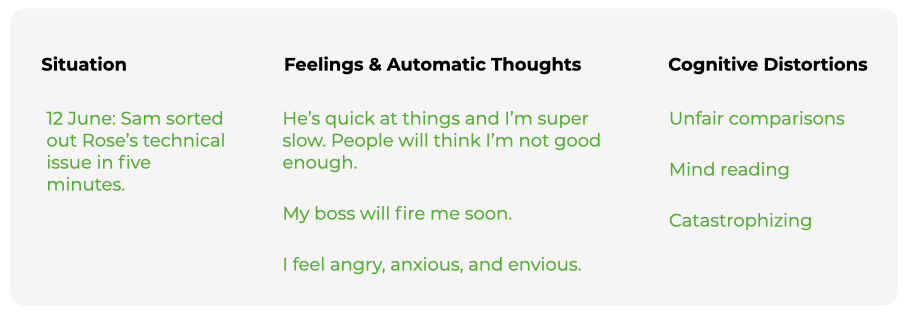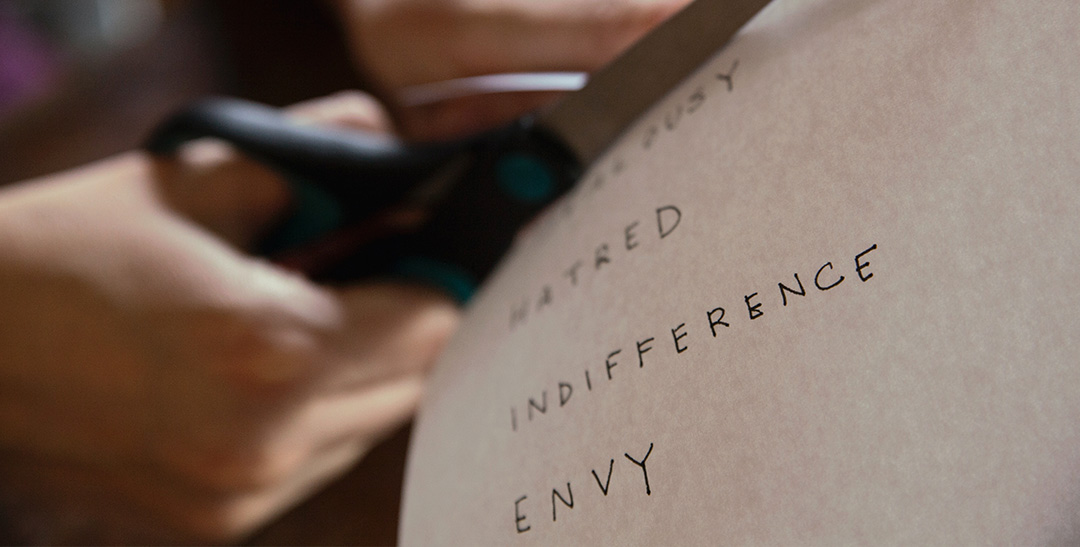I didn’t expect Alex to lose it at the dinner table.
He stopped eating, folded his arms, and furrowed his brows, “How does it take him just five minutes to solve problems?” He was talking about a colleague who was good at fixing technical issues.
“I just don’t get it!” he continued, “You know, I’m the first one to go in the office and the last one to leave. I spend hours and days trying to sort out challenges and he … he nails problems the way a baby farts!” I sensed that Alex was grappling with envy.
We’ve all experienced envy, haven’t we? You hear your friend talking about their ever-happy romantic relationship. Or you see the photos of muscle- and teeth-revealing friends, taken on a sunny beach, posted on social media. Or you come to know that your teammate who doesn’t work as hard as you earns double the salary. Often we equate these types of thoughts with jealousy, but actually it’s envy.
So what’s the difference between jealousy and envy?
You see, while experiencing jealousy your mind sees a person to be a rival who competes for affection or attention. It’s the feeling you experience when someone flirts with your significant other or when someone steals a dinner-date with your bestie that you deeply wanted. Jealousy requires a third person.
In contrast, envy tends to happen between two people. Alex desired the skills of his colleague, wishing he could solve problems as quickly as his teammate.
Contemporary psychologists suggest that while jealousy and envy are both painful emotions, jealousy is often essential for you to know that your relationship is in danger and that you need to take action to protect it. When a man sees another hitting on his girlfriend, it’s jealousy that makes him say through his eyes, “Caveman angry. You better back-off right now,” and thereby protects his intimate connection.
Envy, on the other hand, is more damaging. It made Alex think that he was small and inferior to his colleague. Now that the workmate was big and superior, shame made a sweeping appearance: “You are not smart enough. You are bad.” And then anger, sadness, and embarrassment joined the party: “It’s all unfair. But I shouldn’t even feel this way!”
You’ve probably realised if you want to live a happy life then you ought to minimise envy, and the first step is to recognise it. Jealousy says, “I’ll lose what I have.” Envy says, “I want what you have.”
How do we overcome envy?
Well, we’ll need to illuminate its roots. And when you dig in, you’ll often find unfair comparisons.
Our mind tends to compare ourselves with others automatically. And nearly all comparisons are unfair because many differences—genetics, childhood experiences, and our surrounding environments just to name a few—shape both of you completely differently.
We don’t expect our grannies to possess Beyoncé’s booty-shaking. Do we? But we expect ourselves to own what others have. It’s a vicious trap of our brain.
Actually, Unfair Comparison is a type of automatic thinking error known as cognitive distortions. One of the best ways for us to overcome envy and other damaging emotions is to understand these errors and get better at identifying them.
You’ll probably find it useful to keep a log of your negative thoughts. I’m grateful to Robert Leahy, a psychologist, for introducing this method through his book The Worry Cure.
You start with writing down any situation that makes you angry, sad, afraid, ashamed, jealous, envious—anything that makes you feel negative. You can do this at any time really. I prefer morning time as a way to begin the day with a clean slate.
Then you note automatic thoughts and feelings. And lastly, you identify the distortions. Here’s Alex’s example:

It’s worth stressing that I only experienced tangible benefits by doing the actual writing over a few days. Just reading about the distortions didn’t cut it. Frankly speaking, I have found this to be the best tool to demystify and to dispel the distortions and, in turn, maintain inner peace.
I wonder if I’ve inspired you enough to spend 20 minutes today to capture your thoughts. If so, I wish you luck. Thanks for reading. 🙂


